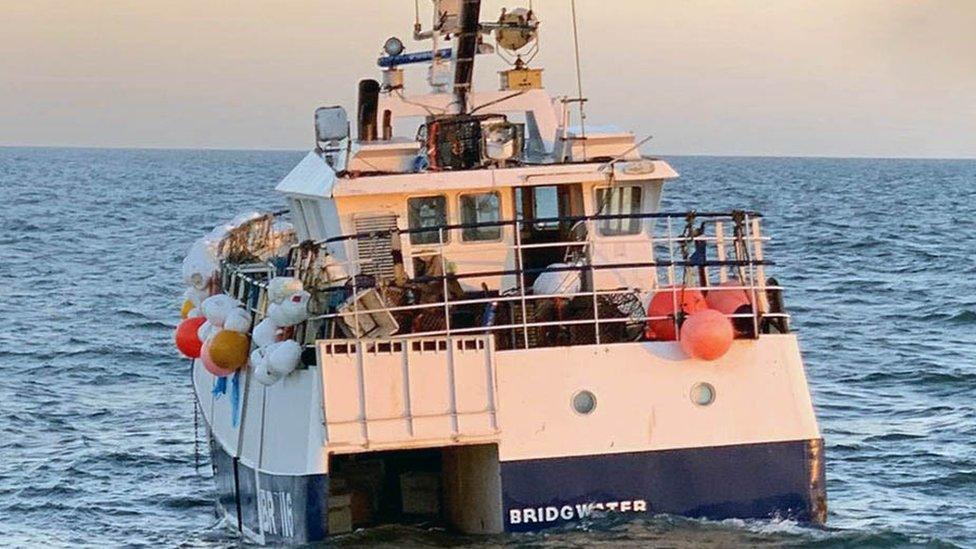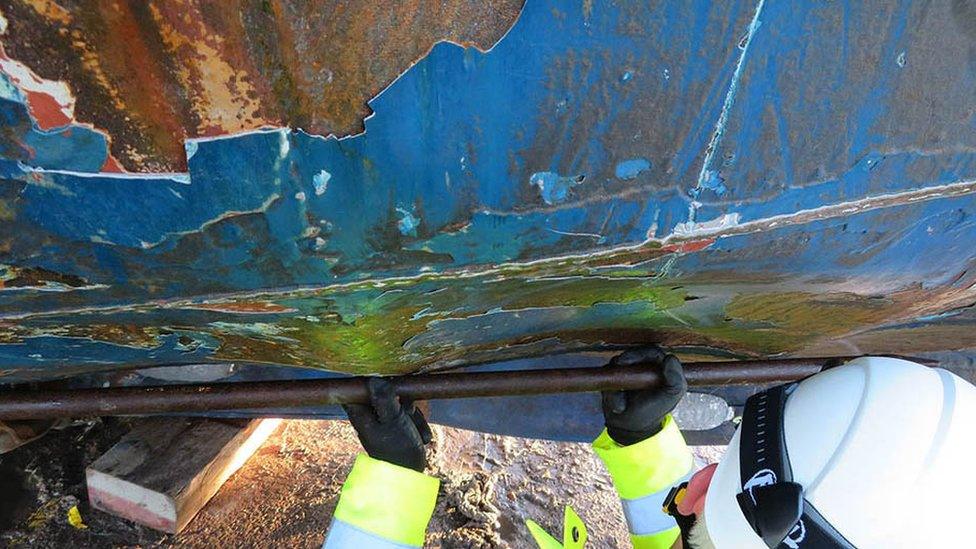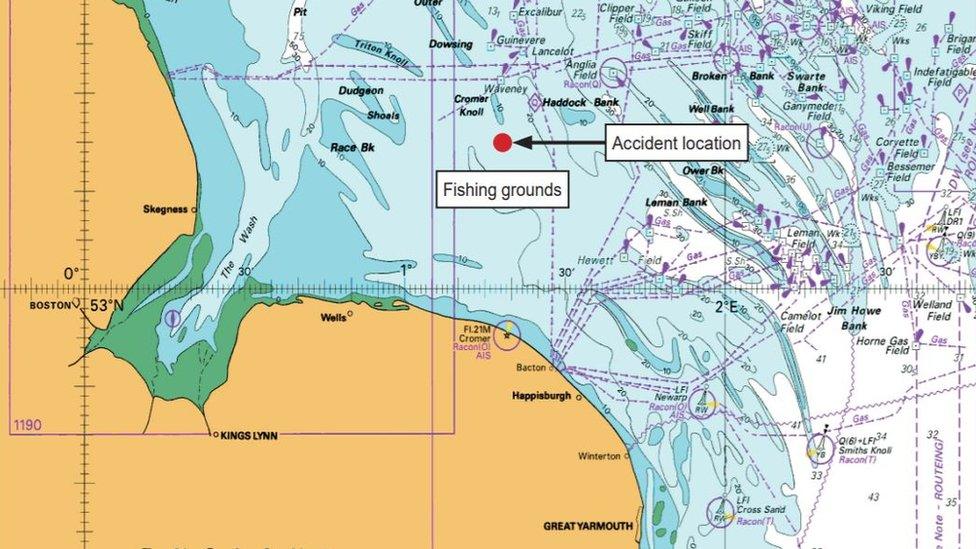Fishing boat explosion: Seabed munitions may have caused blast off Norfolk
- Published

The Galwad-Y-Mor was left low in the water following the explosion and had to be towed to Grimsby
An explosion on a fishing boat where crew members suffered life-changing injuries was possibly caused by old munitions on the seabed, marine accident investigators found.
The explosion took place on 15 December when the Galwad-Y-Mor was about 25 miles (40km) north of Cromer, Norfolk.
All seven crew were rescued and the boat was towed to Grimsby.
An initial assessment, external said there was "nothing the crew could have done" to prevent the accident.
The report from the Marine Accident Investigation Branch (MAIB), external said the crew had been hauling in a string of crab pots in the North Sea when there had been an unexpected explosion.
The boat was thrown into the air and landed again heavily. Propulsion and electrical power was lost and the wheelhouse was completely wrecked.

The fishing vessel suffered extensive damage following the explosion
The report said that following the explosion the vessel's captain was "injured and dazed" and other crew members "badly injured".
It added: "As the engine room was flooding, the skipper ordered the crew to abandon ship."
All seven crew were rescued by an offshore support vessel, the Esvagt Njord, and transferred ashore to hospital by helicopter and lifeboat.
The abandoned boat was then towed to Grimsby.

The accident took place 22 nautical miles (25 land miles) north of Cromer
The report said: "All members suffered injuries, some life-changing."
It said when the Galwad-Y-Mor was inspected at Grimsby "there was no evidence of an internal explosion".
"The source of the explosion has not been determined, but it was possible that old munitions on the seabed were disturbed as the vessel hauled its pots," the report added.
The MAIB said it had notified the Maritime and Coastguard Agency, the Receiver of Wreck and the Ministry of Defence and a full investigation was ongoing.

Find BBC News: East of England on Facebook, external, Instagram, external and Twitter, external. If you have a story suggestion email eastofenglandnews@bbc.co.uk